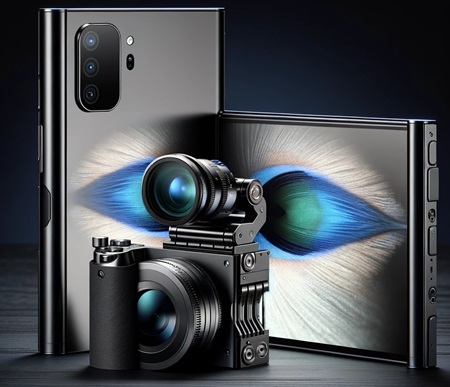
Innovative Smartphone Technologies: A Glimpse Into the Future
Welcome to a fascinating journey through the latest innovations in the smartphone industry. This exploration uncovers the groundbreaking features that have recently emerged, offering insights into their advantages and potential drawbacks. As smartphones continue to evolve at a rapid pace, let’s delve into the technological advancements that are setting new standards for mobile devices.
The Dawn of New Smartphone Era
The smartphone industry has seen remarkable innovations that have transformed phones from simple communication tools to indispensable life-enhancing devices. Key developments include foldable displays that merge the compactness of a smartphone with the expansive view of a tablet, advanced camera systems challenging professional photography equipment, and the ultra-fast connectivity provided by 5G networks. Additionally, the integration of artificial intelligence (AI) is making smartphones smarter and more personalized, while the shift towards eco-friendly materials reflects a growing consciousness towards sustainability.
Foldable Displays and Advanced Cameras

The introduction of foldable displays has revolutionized smartphone design, offering a unique combination of versatility and innovation. These devices cater to users seeking both portability and a large screen for an enhanced viewing experience. However, their high cost and questions about long-term durability are considerations for potential users. Similarly, the evolution of smartphone cameras has been equally impressive, with manufacturers incorporating multiple lenses, high-resolution sensors, and sophisticated software to deliver unparalleled photography capabilities. While these advancements enhance the photography experience, they also introduce complexity and increase the cost of devices.
5G Connectivity and AI Integration
With the deployment of 5G networks, smartphones now boast internet speeds that significantly surpass those of their 4G predecessors, enabling a host of new applications and services, such as seamless video streaming and immersive gaming experiences. Despite its advantages, 5G’s rollout faces challenges related to coverage and the premium price of 5G-capable phones. Concurrently, AI’s integration into smartphones is reshaping user interactions by optimizing performance and personalizing experiences, though it raises important privacy and data security concerns.
Towards Sustainability: Eco-friendly Innovations

In response to the critical issue of electronic waste and environmental sustainability, the smartphone industry is increasingly adopting eco-friendly materials. This shift not only aims to minimize the environmental impact of smartphone production but also appeals to environmentally conscious consumers. Balancing eco-friendliness with performance and durability remains a challenge, but it’s a step in the right direction for the industry.
As we look to the future, it’s evident that smartphones will continue to play a pivotal role in our digital lives, with each innovation bringing us closer to a more connected, efficient, and sustainable world. The ongoing advancements in smartphone technologies not only enhance user experiences but also open up new possibilities for how we interact with the world around us.


